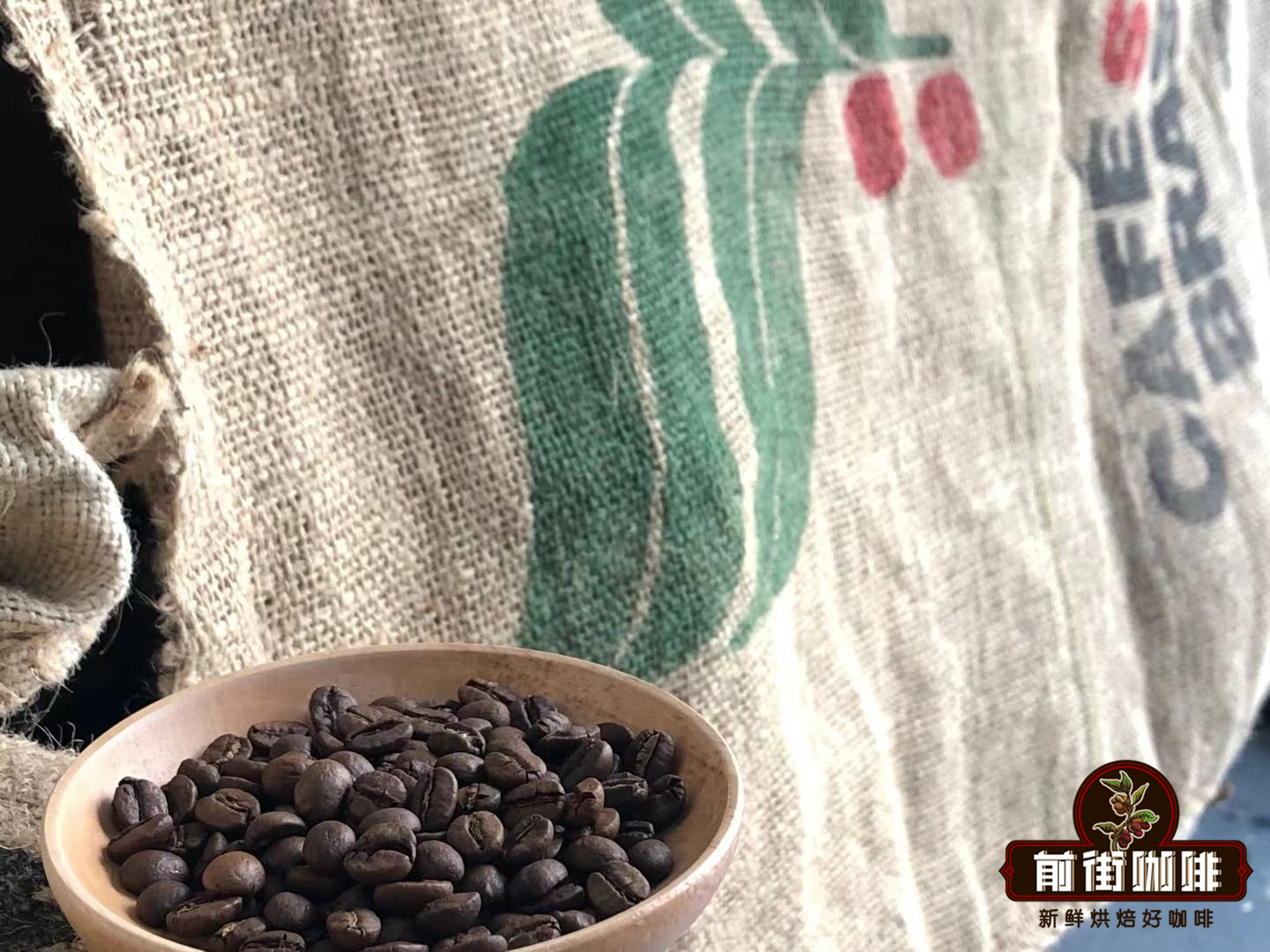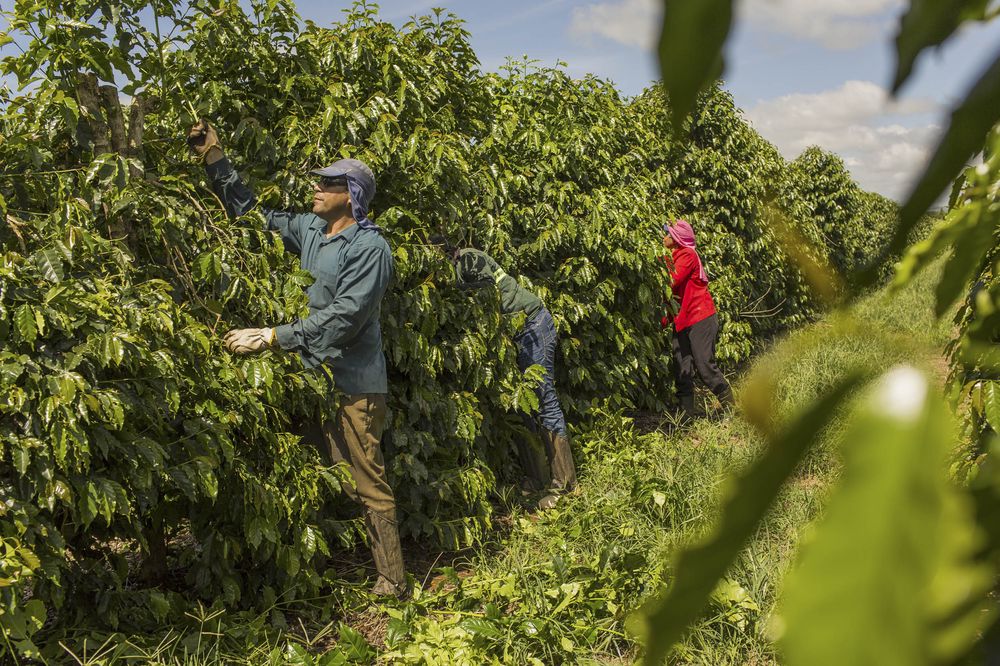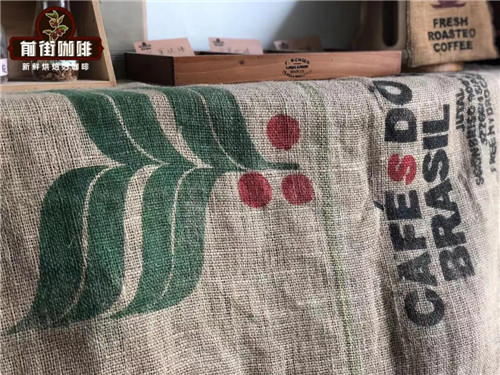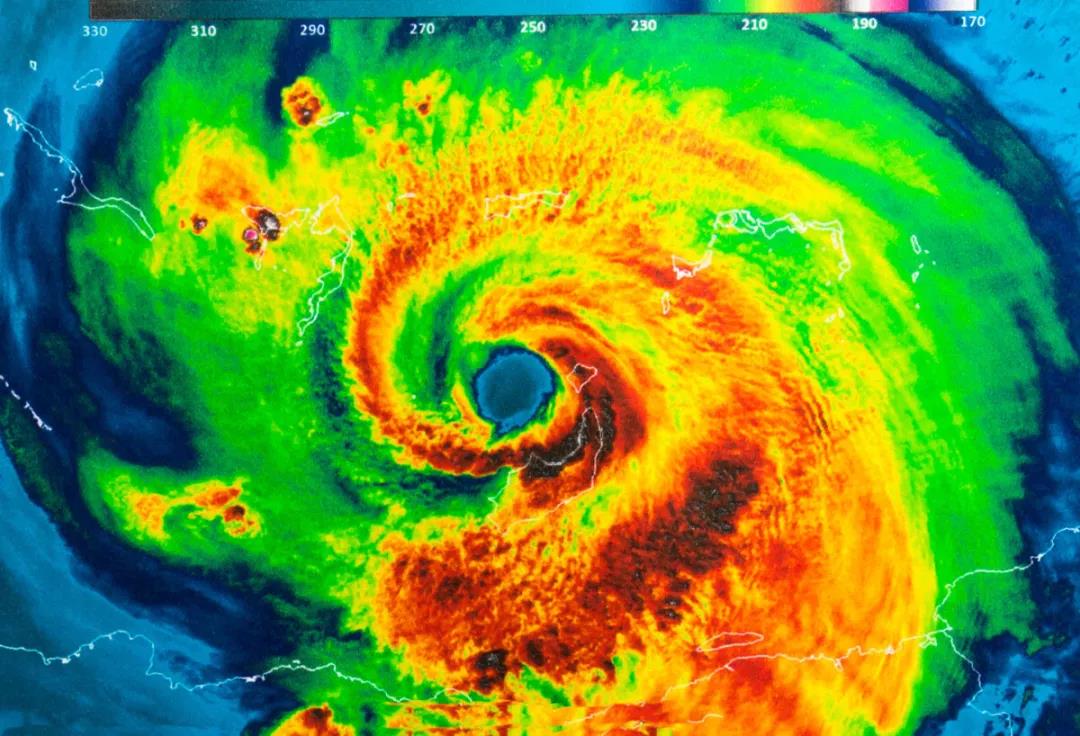The improvement of coffee quality in Brazil has become the second largest source of coffee inventory on the ICE Exchange in the United States.
Professional coffee knowledge exchange more coffee bean information please follow the coffee workshop (Wechat official account cafe_style)
COVID-19 has had an impact on the lives and economies of people all over the world, and the world is looking for solutions to enable society to return to relative normality as soon as possible. And despite all the negative effects of the pandemic, the sustainability of Brazilian agribusiness enabled the country to make progress and break records in 2020: Brazilian coffee exports exceeded US $100 billion for the second time in history.

The organization, competitiveness and efficiency of the Brazilian coffee export sector are critical to the success of the entire production chain, such as the price index paid to growers, which measures the FOB (Free On Board, also known as FOB) effectively transferred to growers. For transactions conducted on FOB prices, the buyer is responsible for sending vessels to pick up the goods, and the seller shall load the goods on the vessel designated by the buyer within the port of shipment and within the time limit specified in the contract and notify the buyer in a timely manner. When the goods are loaded on the named vessel at the port of shipment, the risk is transferred from the seller to the buyer) as a percentage of the export price.

Brazil's Conilon/ Collins price index rose to 89.0% in the third quarter, exactly the same as Brazil's Robusta average in 2019, while Brazil's Arabica coffee bean price index fell to 72.7% in the third quarter. It is worth noting that the price in the third quarter reflects the transfer of FOB prices to domestic coffee prices to a large extent. In addition, the competitiveness and organization of the export sector can be seen in its widely used futures market tools, such as hedging of future contracts and barter operations for the purchase of agricultural inputs and machinery. With the support of export trade and market information, growers have limited sales and income opportunities, which is directly related to the sustainability of Brazilian coffee agro-enterprises.

In addition to reaching a record harvest in 2020, the quality of Brazilian coffee has also improved a lot. The recognition of the quality of Brazilian coffee can be observed from the coffee inventory data released by the ICE Stock Exchange of the United States at the end of the year. Because the coffee beans delivered by the ICE Exchange in the United States over the years are mainly washed, but the coffee beans in Brazil are mainly sun-treated. Since Brazil tried to supply semi-washed coffee beans to the exchange in August last year, Brazilian coffee has continued to account for an increasing share of the exchange's inventory. As of January 22, according to data provided by ICE, the proportion of Brazilian semi-washed coffee in ICE warehouses has exceeded 35% (more than 560000 bags), making it the second largest source of inventory after Honduras. As ICE is willing to accept semi-washed coffee beans in Brazil, ICE's future delivery inventory will no longer be a concern.
Brazilian state supply company Conab will soon release its first official survey of the year of Coffee in 2021. Brazilian Arabica coffee production is expected to decrease in 2021 due to Brazil's biennial negative yield effect and drought in some areas where Arabica coffee is grown, while Brazil has positive expectations for Brazilian Robsta production in 2021.

The Brazilian Council of Coffee exporters (Cecafe) expressed its support for the implementation of programmes such as waste monitoring, producers' right to know and new theme planning in 2021, including educating growers on the proper and safe use of pesticides and the planned family inherited coffee planting project in coordination with the Global Coffee platform, the Brazilian Coffee exporters Council and the National Compact Institute.
In addition, the return of the new US President Joe Biden to the Paris Agreement (the climate change agreement signed in 2016) will undoubtedly put strong pressure on the Brazilian government to show its commitment to reducing "illegal deforestation" in the country.
For more boutique coffee beans, please add private Qianjie coffee on Wechat. WeChat account: kaixinguoguo0925
Important Notice :
前街咖啡 FrontStreet Coffee has moved to new addredd:
FrontStreet Coffee Address: 315,Donghua East Road,GuangZhou
Tel:020 38364473
- Prev

Brazil's coffee export output reached an all-time high of 44.5 million bags in 2020 in advance of the Brazilian coffee production crisis.
For more information on coffee beans, please follow the Coffee Workshop (official Wechat account cafe_style). According to foreign media reports, the European Union and the United Kingdom have held global public consultations on the import of agricultural commodities, a move to force big companies to ensure that deforestation no longer leads to forest degradation. According to the British due diligence on Forest risk Commodities, which ended in early October this year,
- Next

The hurricane hit the Central American producing area and reduced the production of coffee beans in many countries in Central America to varying degrees.
Professional coffee knowledge exchange more coffee bean information please follow the coffee workshop (Wechat official account cafe_style) on November 3, 2020, Category 4 Hurricane ETA (later downgraded to a tropical storm) made landfall in Central America. The hurricane caused varying degrees of losses in Nicaragua, Guatemala, Honduras, El Salvador and Panama, as well as Costa Rica, Mexico and Jamaica.
Related
- What documents do you need to go through to open a coffee shop? coffee shop coffee shop certificate processing process
- How to purchase Coffee beans in small Cafe how to choose a suitable supplier for domestic Coffee supply Company
- How to drink Starbucks Fragrance White Coffee? how to make Australian White Coffee? what Italian coffee beans are recommended?
- The Story of Flora Coffee: the name of Flora Coffee Bean and the implication of the Flowers on Florna Coffee
- How much does a cup of coffee cost? How much is the profit of a cup of coffee? What is the profit of the coffee shop in a year?
- Yunnan small Coffee, known as "fragrant Coffee", introduces the characteristics of Alpine Arabica Coffee producing areas in Yunnan, China
- 2023 latest Starbucks full menu price list how much is a cup of Starbucks coffee what is better to drink the most popular hot and cold drinks recommended
- Starbucks different kinds of Coffee Price list Starbucks menu 2023 Top Ten Best drinks in Starbucks
- Starbucks Spring praise Comprehensive matching Coffee Bean theme Story Packaging implication and taste description
- The cost of a cup of coffee latte American coffee cost price and selling price

